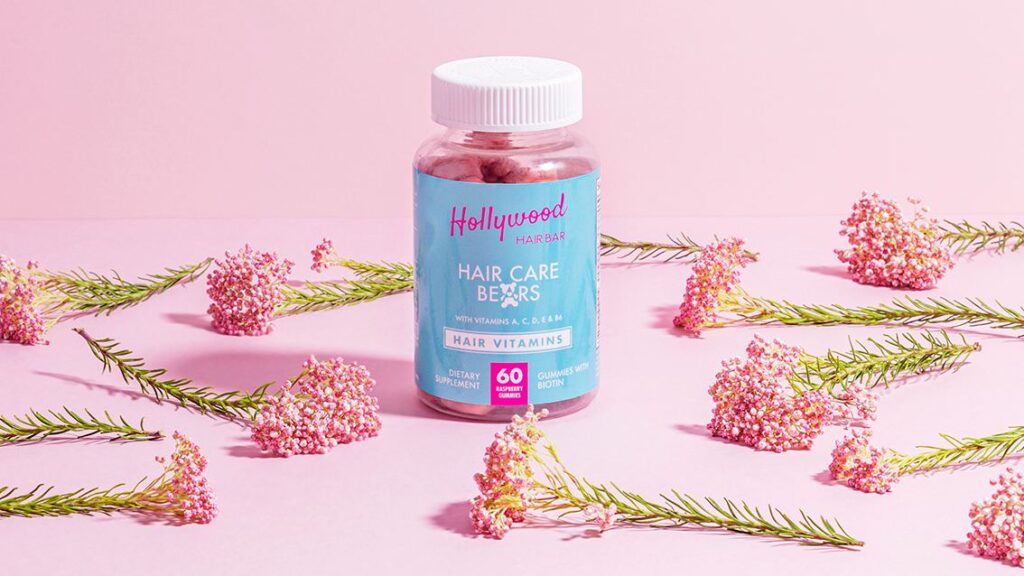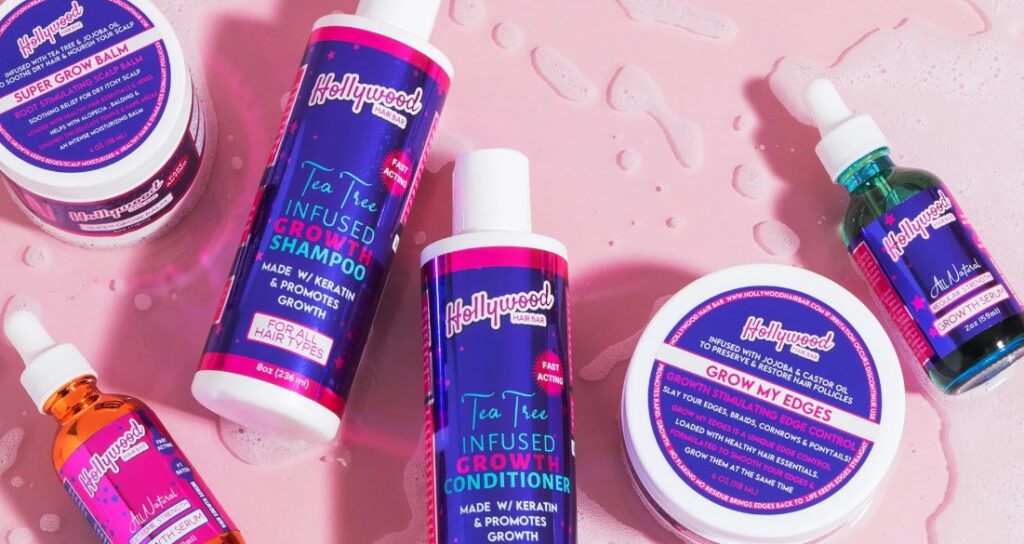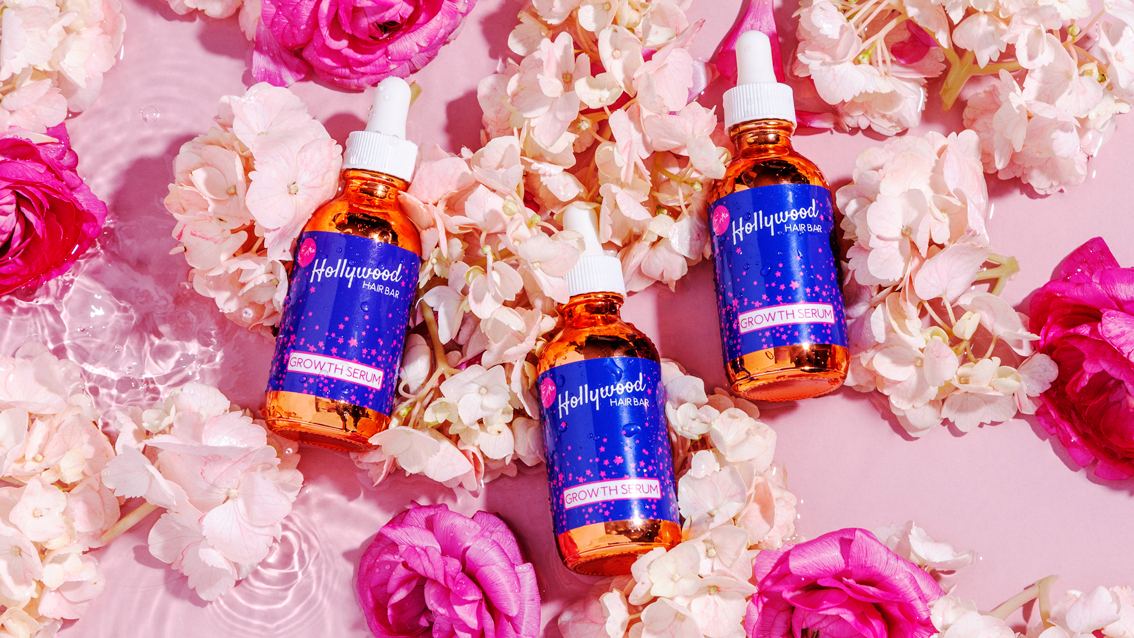Who doesn’t dream of having long, lush, and healthy hair? It’s not just a symbol of beauty but also a reflection of your overall health. Keeping your hair in top condition requires more than just good genes; it takes a dedicated routine, proper care, and a bit of know-how. In this article, we’ll explore hollywood hair bar growth serum 2oz proven tips and tricks to help you maintain and enhance the beauty of your hair.

Understanding Hair Health
Before diving into the specifics of hair care, it’s crucial to understand the basics of hair health. Hair is made up of a protein called keratin, produced in hair follicles in the outer layer of skin. As follicles produce new hair cells, old cells are pushed out through the surface of the skin at a rate of about six inches a year. The hair you see is actually a string of dead keratin cells.
Several factors can affect the health of your hair, including genetics, diet, stress, and environmental factors. By understanding these elements, you can better tailor your hair care routine to meet your specific needs.
Daily Hair Care Routine
Maintaining a consistent daily hair care routine is essential for keeping your hair healthy and beautiful. Here are some tips to incorporate into your daily regimen:
- Gentle Washing: Use a mild shampoo suited to your hair type. Avoid washing your hair too frequently, as it can strip natural oils and cause dryness.
- Conditioning: Always follow up with a conditioner to keep your hair moisturized and smooth. Focus on the ends, where the hair is the driest.
- Brushing: Use a wide-tooth comb to detangle your hair when wet to prevent breakage. Avoid harsh brushing, which can damage the hair shaft.
Choosing the Right Hair Products
Selecting the right hair products can make a significant difference in your hair’s health. Here’s how to choose products that work best for you:
- Identify Your Hair Type: Determine whether your hair is oily, dry, normal, or a combination. This will guide your choice of shampoo and conditioner.
- Shampoos and Conditioners: Look for products that are free from harsh chemicals like sulfates and parabens. Opt for those enriched with natural ingredients.
- Hair Masks and Treatments: Use hair masks or deep conditioners once a week to provide extra nourishment and repair damage.
Healthy Diet for Healthy Hair
What you eat plays a crucial role in the health of your hair. Incorporate these nutrients into your diet for optimal hair growth:
- Proteins: Hair is primarily made of protein, so ensure you’re getting enough from sources like eggs, fish, and legumes.
- Vitamins and Minerals: Vitamins A, C, D, and E, zinc, iron, and omega-3 fatty acids are essential for healthy hair. Include a variety of fruits, vegetables, nuts, and seeds in your diet.
Hydration and Hair Health
Staying hydrated is key to maintaining healthy hair. Water supports vitamin absorption and helps transport nutrients to hair cells. Aim to drink at least eight glasses of water a day, and consider incorporating hydrating hair products to keep your hair moist and vibrant.
Protecting Your Hair from Damage
Hair can be easily damaged by everyday activities and environmental factors. Here are some tips to protect your hair:
- Avoid Heat Damage: Limit the use of heat-styling tools like straighteners, curling irons, and blow dryers. When you do use them, apply a heat protectant spray.
- Protect from the Sun: Wear a hat or use a UV protectant spray to shield your hair from the sun’s harmful rays.
- Avoid Harsh Chemicals: Reduce the use of chemical treatments like dyes and relaxers, which can weaken hair and cause breakage.
Styling Tips for Healthy Hair
Styling your hair doesn’t have to come at the cost of its health. Follow these tips for safe styling:
- Use Gentle Tools: Opt for soft-bristle brushes and wide-tooth combs to minimize breakage.
- Limit Tight Hairstyles: Avoid hairstyles that pull on your hair roots, such as tight ponytails and braids, which can cause traction alopecia.
- Natural Drying: Whenever possible, let your hair air dry rather than using heat.
The Role of Hair Oils
Hair oils can provide numerous benefits, from moisturizing to adding shine. Here’s how to choose and use them:
- Benefits: Hair oils can strengthen hair, reduce frizz, and add luster. They can also provide essential nutrients to the scalp.
- Choosing the Right Oil: Different oils work best for different hair types. For example, argan oil is excellent for dry hair, while jojoba oil works well for oily hair.
Dealing with Hair Loss
Hair loss can be distressing, but there are ways to manage and mitigate it:
- Common Causes: Hair loss can be due to genetics, stress, poor diet, or underlying health conditions.
- Solutions: Treatments include over-the-counter products like minoxidil, prescription medications, and natural remedies such as essential oils and scalp massages.
Seasonal Hair Care Tips
Different seasons can affect your hair differently. Here’s how to adapt your routine:
- Winter: Use a deep conditioner to combat dryness caused by cold weather and indoor heating.
- Summer: Protect your hair from the sun and humidity by using a UV protectant spray and anti-frizz products.
DIY Hair Masks and Treatments
Homemade hair masks can be a great way to nourish your hair naturally:
- Recipes: Combine ingredients like avocado, honey, and olive oil for a hydrating mask. Yogurt and egg masks can add protein and shine.
- Benefits: Natural treatments can be free from chemicals and tailored to your hair’s specific needs.
The Impact of Stress on Hair Health
Stress can take a toll on your hair, leading to issues like hair loss and dullness:
- Effects: High-stress levels can disrupt the hair growth cycle, causing hair to enter the shedding phase prematurely.
- Management Tips: Practice stress-relief techniques such as yoga, meditation, and regular exercise to keep your stress levels in check.
Regular Trims and Their Importance
Regular trims are essential to maintain hair health and prevent split ends:
- Frequency: Aim to trim your hair every 6-8 weeks to keep it looking healthy and to promote growth.
- Benefits: Trimming helps remove damaged ends, reducing breakage and improving the overall appearance of your hair.
Keeping your magic hair growth hair healthy and beautiful requires a holistic approach that includes proper care, a healthy diet, and protective measures. By following these proven tips, you can achieve the long, lush hair you’ve always desired. Remember, consistency is key, and your hair will thank you for the effort you put in.

FAQs
How often should I wash my hair?
The frequency of washing depends on your hair type and lifestyle. Generally, washing 2-3 times a week is sufficient for most hair types.
What is the best way to prevent split ends?
Regular trims, using a wide-tooth comb, and avoiding excessive heat and chemical treatments can help prevent split ends.
Can diet really affect my hair health?
Absolutely! A balanced diet rich in proteins, vitamins, and minerals is crucial for healthy hair growth.
Are natural products better for my hair?
Natural products can be gentler and free from harsh chemicals, making them a good choice for maintaining healthy hair.
How can I make my hair grow faster?
To promote faster hair growth, maintain a healthy diet, stay hydrated, avoid excessive heat and chemical treatments, and get regular trims.




